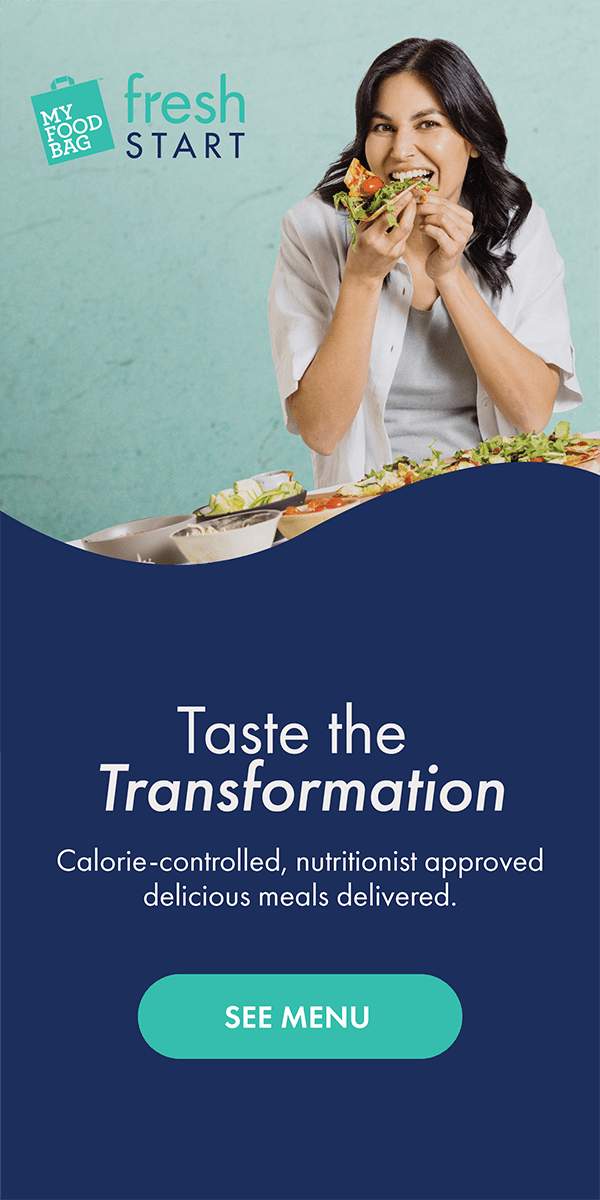It’s October and we’re celebrating World Vegetarian Month! Our dietitian Lily ‘lentil’ and nutritionist Caitlin ‘ciabatta’ weigh in on some of the most common myths surrounding plant-based eating and our chef Kylie ‘kale’ shares her secret to making the veggies on your plate sing with deliciousness.
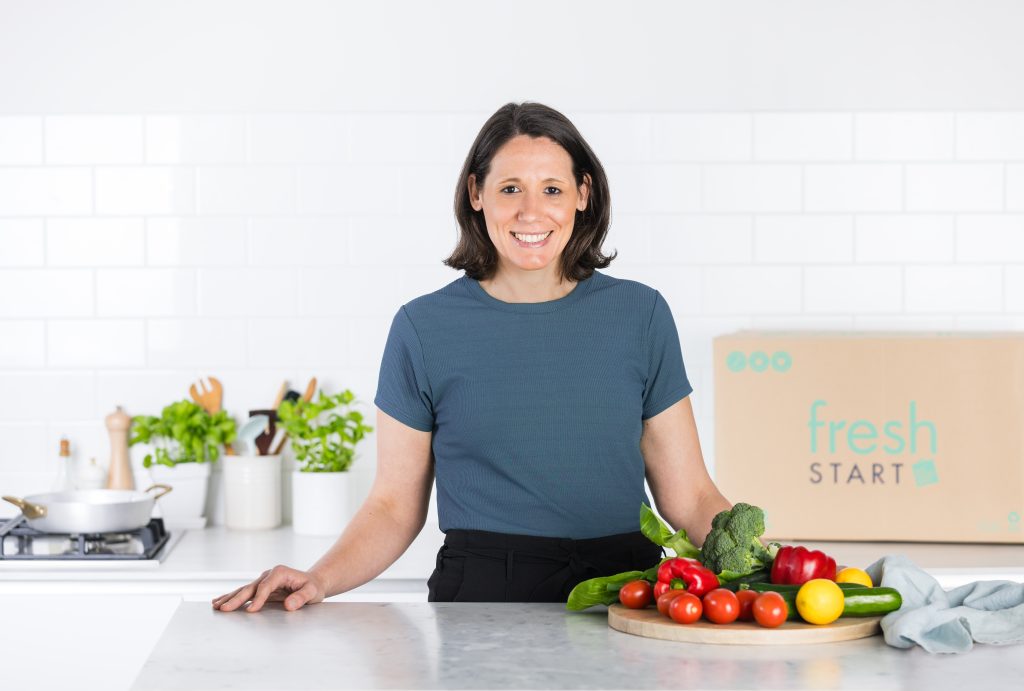
We all know veggies and other plant foods like chickpeas, nuts, seeds, and grains are rockstars in the nutrition world and should dominate our plate. But it can be hard to put it into practice and keep everyone in the household happy!
Whether you follow a vegetarian diet or want to pack in more veggies, our message this month is to forget superfoods and dial up the plants in a way that works for you. Any small steps to get more plants on your plate benefits the health of you and your whānau.
When it comes to veggies, the latest New Zealand Health Survey (2022) results, show only a small number of adults (10%) and children (6%) meet the recommended servings of vegetables each day (1). We can get hung up on recommending one type of food over another, but when it comes to veggies, the best ones are the ones you eat!
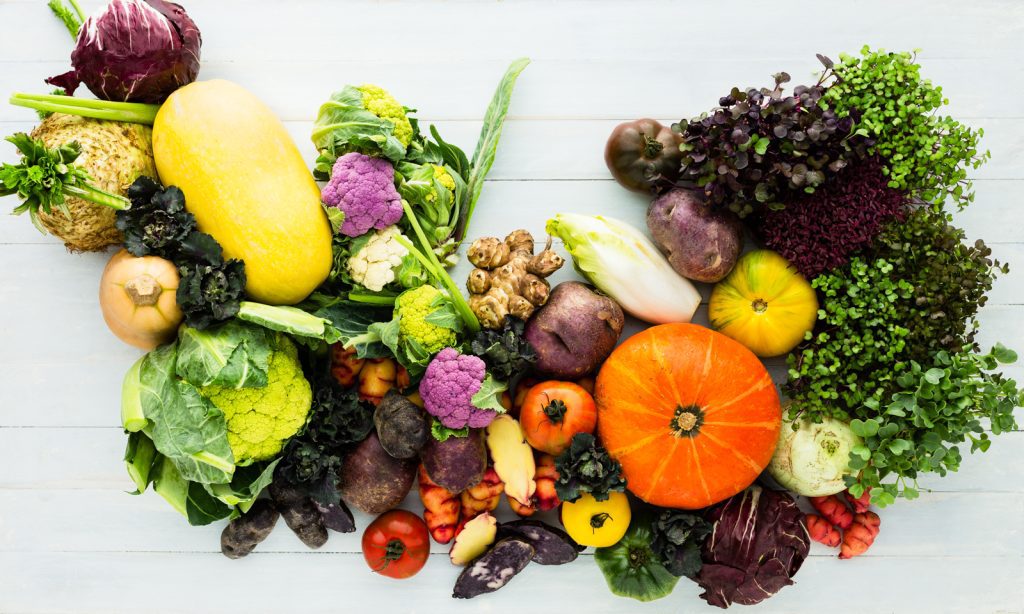
Five common myths
Myth 1: You need a veggie peeler
Next time you whip out your veggie peeler think about whether you reeeaaallly need to peel. Can you just give it a good scrub? When you peel the skins off vegetables like potatoes and carrots you are throwing away many of the important nutrients, like gut-friendly fibre and bioactives, many of which have antioxidant properties. It’s a time saving hack too!
Myth 2: A plant-based diet has to be plant-only.
Want to know the good news? There is more than one way to eat well. Some people thrive off a vegan or vegetarian diet and others lack energy and nutrition.
We prefer the term ‘plant-rich’ because it covers a range of different eating styles and accepts the thing that we can all agree on – we all need to eat plenty of plants! Whether you eat eggs, dairy, seafood or meat becomes less important and we can celebrate the valuable nutrition that these foods provide our bodies with too.
Myth 3: Fresh is better than frozen
Fresh produce is often picked before being ripe so that it ripens while being transported. Frozen is usually picked at peak ripeness when the produce is most nutritious! At the end of the day, any way you can get veggies onto your plate is a win. Frozen is affordable and available all year round which makes it an excellent option.
Myth 4: ‘Plant-based’ is automatically healthier
When you see ‘plant-based’ on a food label it doesn’t always mean it’s healthier.
You’ll find lots of processed plant foods on supermarket shelves and wide range of products from yoghurts through to fake meats. When we look at the evidence for the benefit of plant-based diet the basis in on whole foods (like vegetables and whole grains). Some of these products are great options, but others are loaded with extra ingredients and sodium, so it always pays to read the label and compare products.
Myth 5: You need to eat superfoods
Of course there are some foods that are nutrient-dense like leafy greens, nuts and berries but it’s important to focus on the bigger picture.
We prefer to think of it as a ‘super plate’. There isn’t one food or nutrient that is going to superpower your health. It’s more important to think about the diversity of the whole foods on your plate than getting too hyped over blueberries or kale.
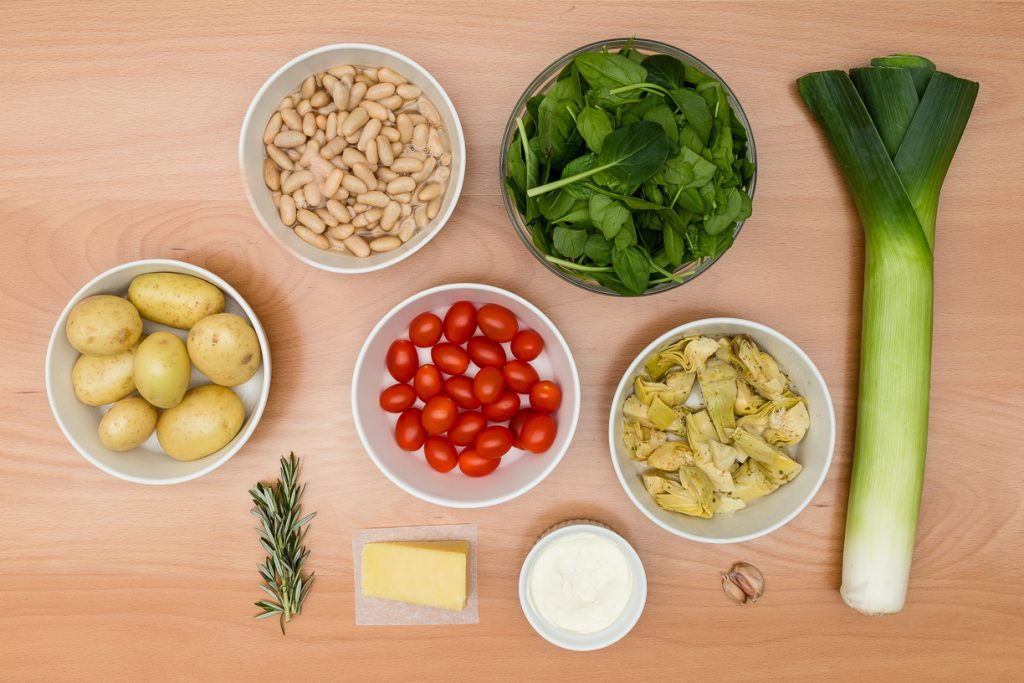
Three ways to jazz up your veggies
Gone are the days of boring steamed and over-boiled veggies! Follow our chef Kylie ‘kale’s’ secret strategies to pack in the flavour. A tasty vegetable is more likely to be eaten.
If in doubt roast it out
Roast vegetables like cauliflower, broccoli, carrot and pumpkin with olive oil, salt, spices, nuts or seeds to maximise flavour.
Try the air-fryer
Veggies in the air-fryer are not only quick to cook but they taste delicious too. Try making crispy potatoes and kūmara or tasty grilled capsicum, courgette and eggplant.
Pair with herbs
Fresh herbs bring flavour to the party! Sprinkle basil, mint, or coriander just before eating for that fresh summer feel or cook vegetables with thyme, oregano or parsley.
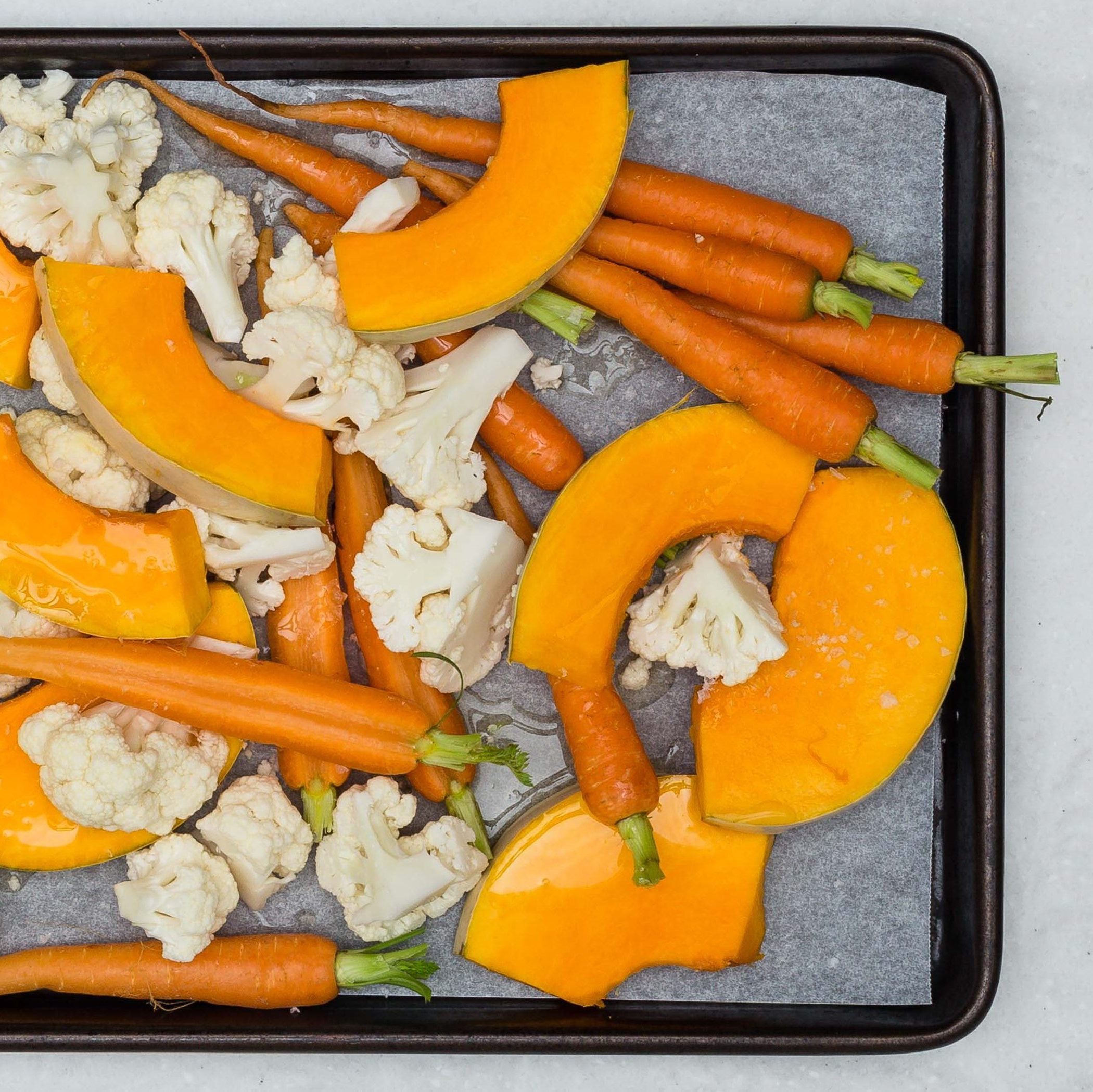
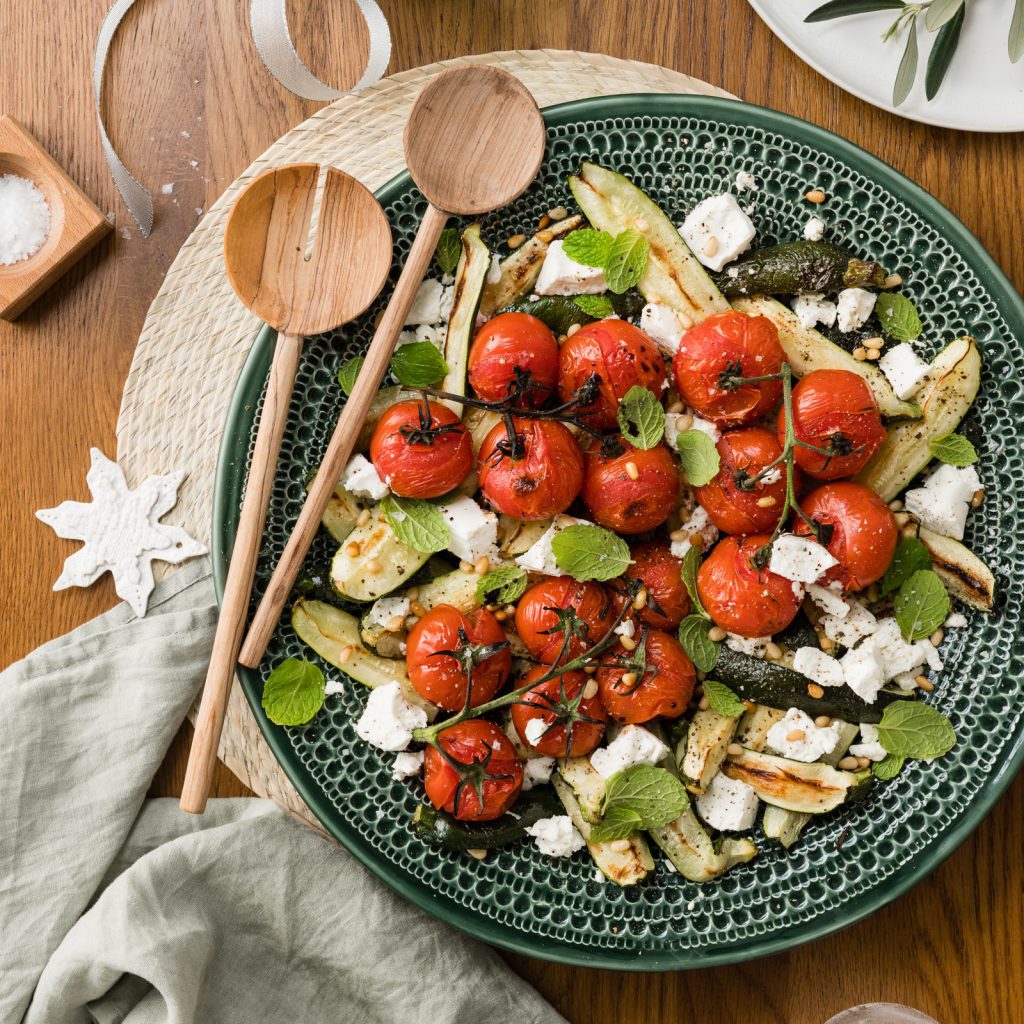
Small steps
‘Eat food, mostly plants, not too much’
Michael Pollen
This World Vegetarian month think about small steps to add more plants on your plate. A great place to start could be adding in a vegetarian meal each week and seeing how you go. You may surprise yourself!
References
- Ministry of Health. 2022. Annual Data Explorer 2021/22: New Zealand Health Survey [Data File]. URL: https://minhealthnz.shinyapps.io/nz-health-survey-2021-22-annual-data-explorer/
- Craig WJ, Mangels AR; American Dietetic Association. Position of the American Dietetic Association: vegetarian diets. J Am Diet Assoc. 2009 Jul;109(7):1266-82.
